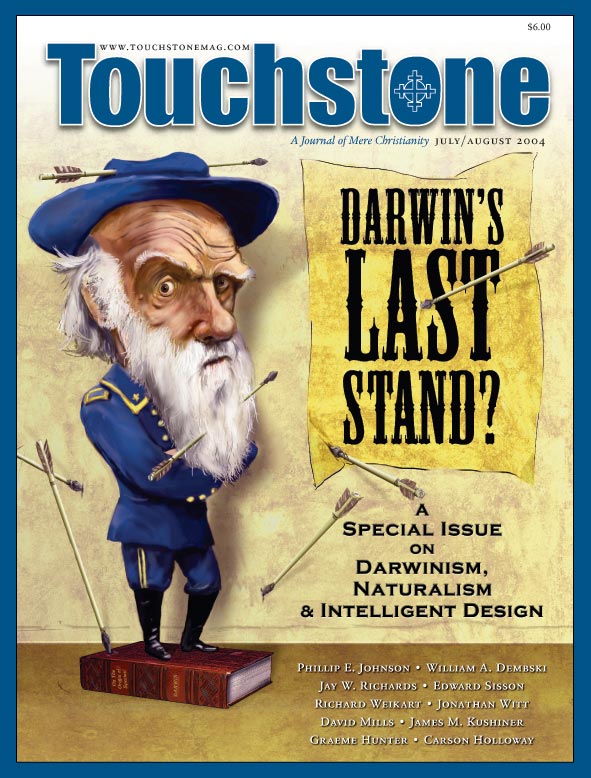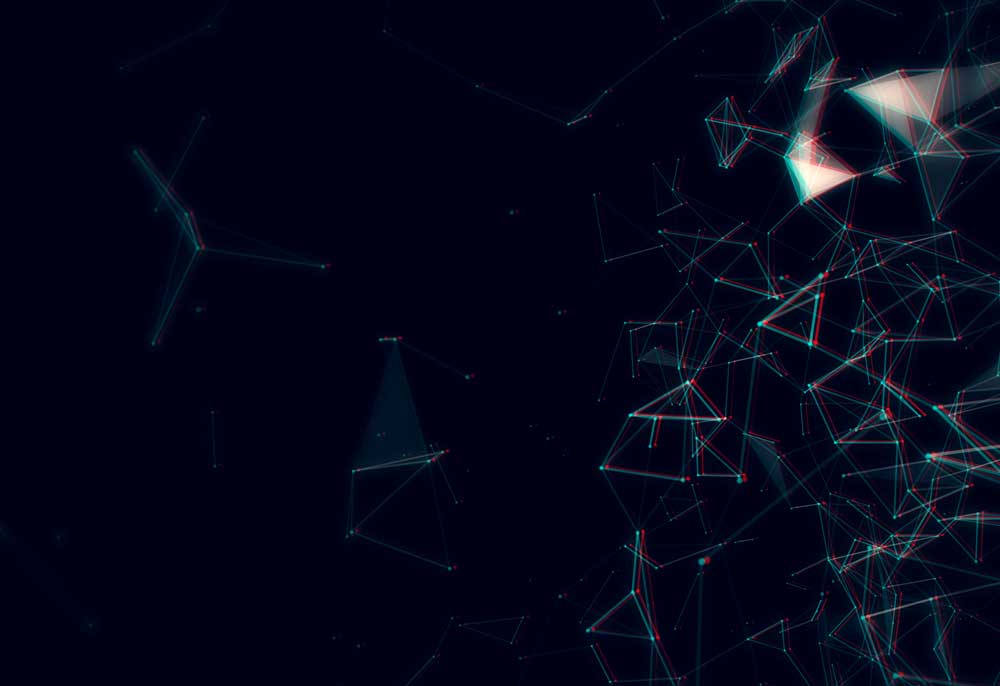Reality & Reluctant Science
Old Science Confronts a Formidable Challenge in the Scientific ID Movement
by Jay W. Richards
At the end of the nineteenth century, mainstream science held a simple view of the universe. The official—and materialistic—view went something like this: (1) The universe has always existed, and so we need not address the question of its origin; (2) everything in the universe, large and small, submits to a few well-understood, deterministic laws; (3) life initially turned up as a result of luck and chemistry; (4) cells, for their part, are basically little sacs of gel; and (5) nearly all those complicated adaptations of organisms result from a starkly simple process called natural selection: this almost miraculously creative process merely seizes and passes along those minor, random variations that help a creature survive.
Religion might have had its place, but science was the one source of objective, certain, nonsectarian knowledge. It was the one source of knowledge for “the public square.” Religion, and even ideas that might have theological implications, were to be safely quarantined in the private realm of subjective opinion.
The indispensable intellectual support for this picture of the world was provided by the positivist interpretation of science, and of knowledge generally. Positivism was a program designed to purge “metaphysics” from science, to force scientists to posit only impersonal explanations for the facts it observes. As the National Academy of Science has put it in our day, “the most basic characteristic of science [is] reliance upon naturalistic explanations.”1 As a result, it forbade scientists to appeal to intelligent agency when trying to explain either the features of the natural world or the natural world itself.
Such a stricture obviously eliminated a divine agent, but it eventually became clear that it eliminated agents in general. Everything was thought to be reducible to the impersonal interactions of physical laws and matter, and nothing else mattered. In fact, many senior physicists had concluded that physics was basically a complete science, and there was little left to do except tidy up the theory here and there.
Reality Rebelled
But almost as soon as this Procrustean bed was made, the real world refused to lie in it. In the early twentieth century, the startling revelations of the quantum realm suggested that the world was not quite as submissive as the materialists had expected. In the 1920s astronomer Edwin Hubble discovered that the light from distant galaxies was “red-shifted,” indicating that the universe is expanding. This and other details suggested that the universe had come into existence in the finite past—that it has an age. This flatly contradicted the earlier picture of an eternal and self-existing cosmos and raised again the question of its origin.
Then, in the 1960s and 1970s, physicists began to notice that the universal constants of physics, such as the forces of gravity and electromagnetism, seemed to be “finely tuned” for the existence of complex life. To astrophysicist and atheist Fred Hoyle, this suggested the activity of a “superintellect.”
Darwinism itself had been coming in for a sustained critique, and not just from “creationists.” Michael Denton’s Evolution: A Theory in Crisis and other books by mainstream writers showed that the Darwinists’ evidence did not sustain the Darwinists’ confident claims, a point made more recently in Jonathan Wells’s Icons of Evolution.
Still more recently, growing evidence in astronomy has revealed that even in a finely tuned universe, many local things have to go right to build a single habitable planet. Moreover, the requirements for habitability also seem to provide the best overall conditions for making scientific discoveries. You might expect this if the universe were designed for discovery, but not if you were a card-carrying materialist.
Jay W. Richards is vice president and senior fellow of the Discovery Institute in Seattle. He is the author most recently of The Untamed God (InterVarsity, 2003) and co-author with astronomer Guillermo Gonzalez of The Privileged Planet: How Our Place in the Cosmos Is Designed for Discovery (Regnery, 2004).
subscription options
Order
Print/Online Subscription

Get six issues (one year) of Touchstone PLUS full online access including pdf downloads for only $39.95. That's only $3.34 per month!
Order
Online Only
Subscription

Get a one-year full-access subscription to the Touchstone online archives for only $19.95. That's only $1.66 per month!
bulk subscriptions
Order Touchstone subscriptions in bulk and save $10 per sub! Each subscription includes 6 issues of Touchstone plus full online access to touchstonemag.com—including archives, videos, and pdf downloads of recent issues for only $29.95 each! Great for churches or study groups.
Transactions will be processed on a secure server.
more on science from the online archives
more from the online archives
calling all readers
Please Donate
"There are magazines worth reading but few worth saving . . . Touchstone is just such a magazine."
—Alice von Hildebrand
"Here we do not concede one square millimeter of territory to falsehood, folly, contemporary sentimentality, or fashion. We speak the truth, and let God be our judge. . . . Touchstone is the one committedly Christian conservative journal."
—Anthony Esolen, Touchstone senior editor












